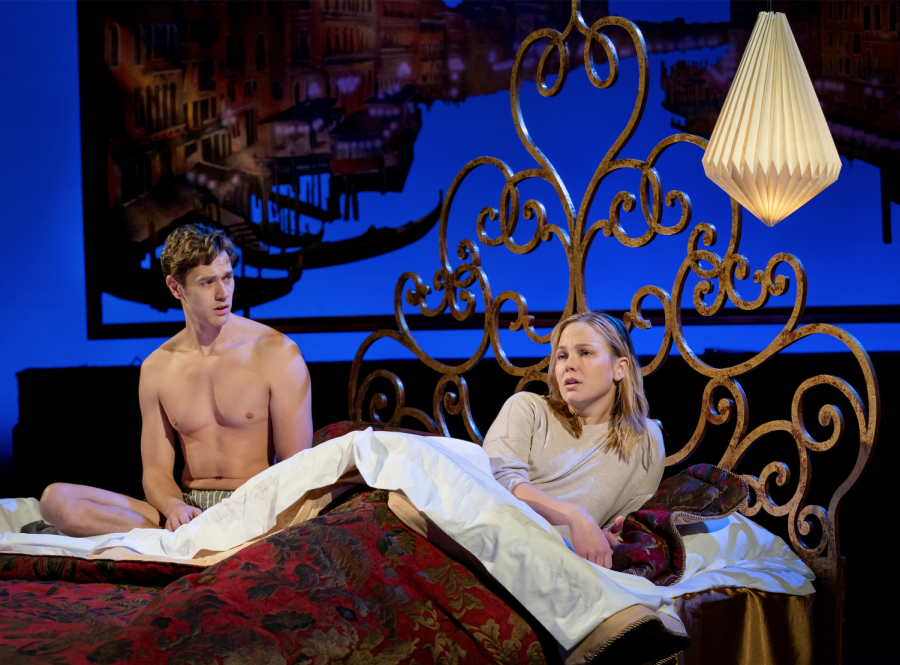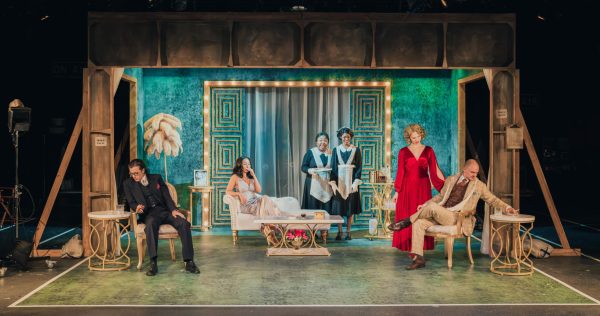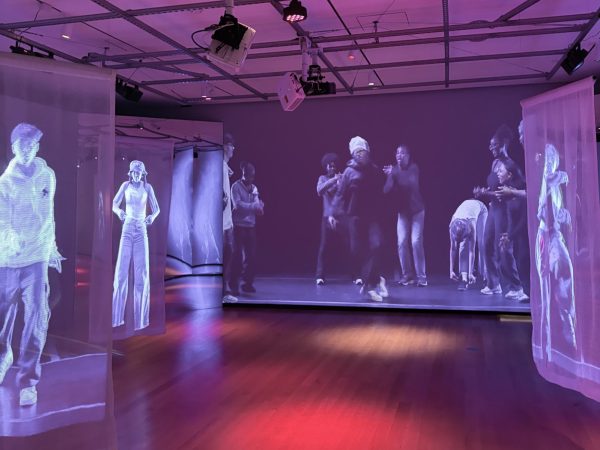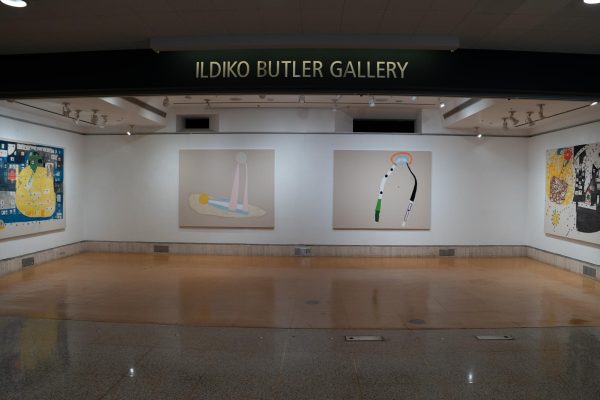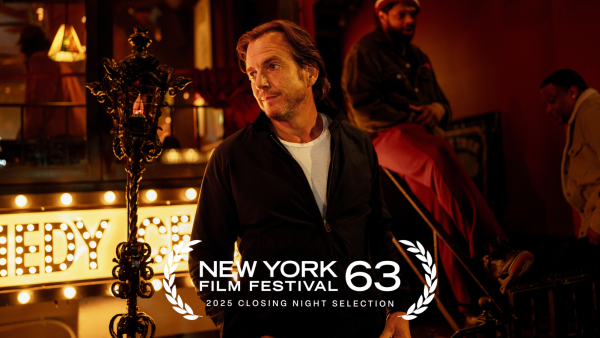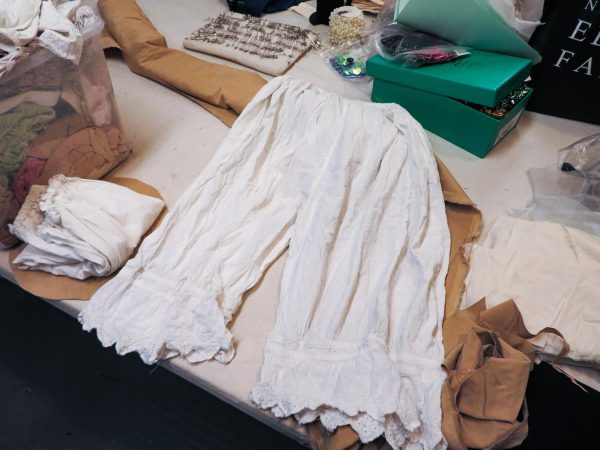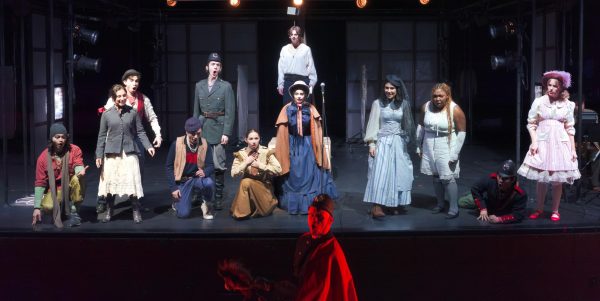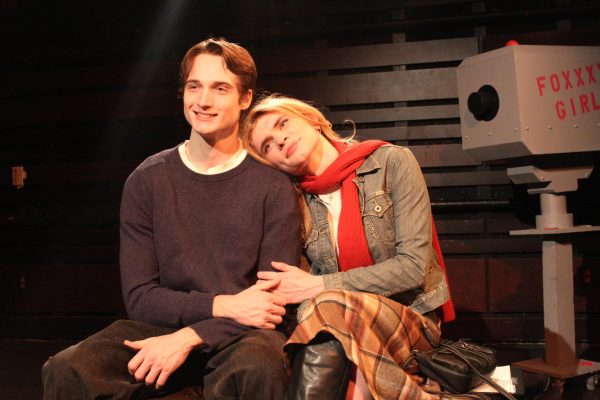Review: Stoppard’s ‘The Hard Problem’ Looks for Humanity in Human Consciousness
COURTESY OF PAUL KOLNIK
Chris O’Shea and Adelaide Clemens in Tom Stoppard’s “The Hard Problem,” now open at the Mitzi E. Newhouse Theater.
“We need to live first of all; to believe in what makes us live and that something ‘makes’ us live — to believe that whatever is produced from the mysterious depths of ourselves need not forever haunt us as an exclusively digestive concern,” Artaud told us, jokingly.
Obvious to the dramatist was the divide between hunger, a life sustaining power and nourishment, evidence of the divine within us — true theater itself proof of brimstone, ourselves not artistic beings dallying on its stage, but victims burning at life’s stake, signaling through the flames.
And if we are to think of Tom Stoppard, whose newest play, “The Hard Problem,” opened at the Lincoln Center Theater on Monday, reuniting this modern Shakespeare with the creative forces who shepherded “The Coast of Utopia” to Broadway, we are to think of Antonin Artaud.
Both have sought to lower the stage into the depths of the human mind, endeavoring to see the theater as a proxy for human consciousness, an outlet whose own bizarre corruptions of life are but well-directed reflections of our own conscious turmoil.
Surely, Stoppard has laid before his audience an impossible feat with “The Hard Problem,” its mission to stage the greatest question of human existence: the problem of consciousness. Are we only a collection of neurons, mechanisms for life function? Or do we experience a consciousness beyond the bounds of neuroscience, one capable of altruism unattached to Darwinian self-interest?
For a test subject, Stoppard gives us Hilary (Adelaide Clemens), a behavioral psychologist at a neuroscience think-tank called the Krohl Institute for Brain Science, who pushes against the hedge fund billionaires and mathematical scientists who toe the hard line of unfeeling, Darwinian science. Compelled to believe in something larger than her own synaptic connections, Hilary, herself in need of a miracle, gestures toward the divine.
Easy is it to say that Stoppard, playwriting’s intellectual acrobat, both “Arcadia” and “Hapgood” no stranger to epistemological questions of Cartesian scale, has trod a hopeless path with “The Hard Problem,” his poetry no match for the mammoth intellectual shadow of the problem of consciousness.
True, Stoppard’s “The Hard Problem,” rewritten for Lincoln Center’s American ear, struggles not to burden its audience with the leaden weight of academic inquiry. But to say it is directionless, that narrative and form embodied in Hilary’s struggle to connect science and divinity, to render her prayers for a lost daughter within a scientific mind, have failed to yield Stoppard an answer to the hard problem is to miss this play’s indelible shadow.
That we see the world through Hilary’s eyes; that she gets the job at Krohl despite her obvious doubts in the ability of science to account for human consciousness; that her opponent (and occasional lover) Spike (Chris O’Shea), an unbending scientist who believes only in the capacity of neurological function, is this play’s villain; and that the miracle for which Hilary prays is realized by “The Hard Problem’s” end is enough proof of what Stoppard hopes to impart to his audience about divinity in our lives.
Not to say that Lincoln Center’s creative team, led by Jack O’Brien, whose directorial cooperation with Tom Stoppard at the Lincoln Center Theater has given “Hapgood,” “The Invention of Love” and “The Coast of Utopia” all homes in New York City, is not responsible for mapping success into this notoriously troublesome play. While O’Brien’s impressionistic staging could walk any audience member down from the high cliffs of academic unrest, it’s clear that foregrounding Hilary’s fight to find her lost daughter was a conscious choice for this Tony-winning director. Placing Hilary’s bleeding heart (acted with excellence throughout this show by Clemens) in front of an audience otherwise lost in the brambles of neuroscientific debate is a choice that has paid off well. That Hilary and Spike, occupying opposite ends of a scientific sea each other dare not cross, debate in their underwear, laying in an apartment messied by clothes thrown in the pursuit of sex, acquiesces, if only for a moment, our anxiety over the human condition.
Love, it seems, is something we can understand.
Walk away from “The Hard Problem” carrying this and Stoppard will have succeeded in his mission. This is an exhausting play, braced by endless Kantian and Cartesian debate over altruism and self-preservation, goodness and selfishness, consciousness and function, prayer and calculation. But written into its incessant argument — our need to know the answer to the hard problem itself wreaking of humanity — is boundless hubris, one Stoppard hammers into his audience with every inconclusive debate between Hilary and Spike.
That our ceaseless intervention into the nature of the divine, into consciousness and the mystery of our minds, is our most human faculty — one ultimately destined to corrupt the divine within us, Artaud thought — may very well be the beating heart of this pedantic inquisition. Stoppard’s very need to ask, to mine a solution for the hard problem of consciousness at all, is itself a theatrical compulsion done in the name of the human condition.

